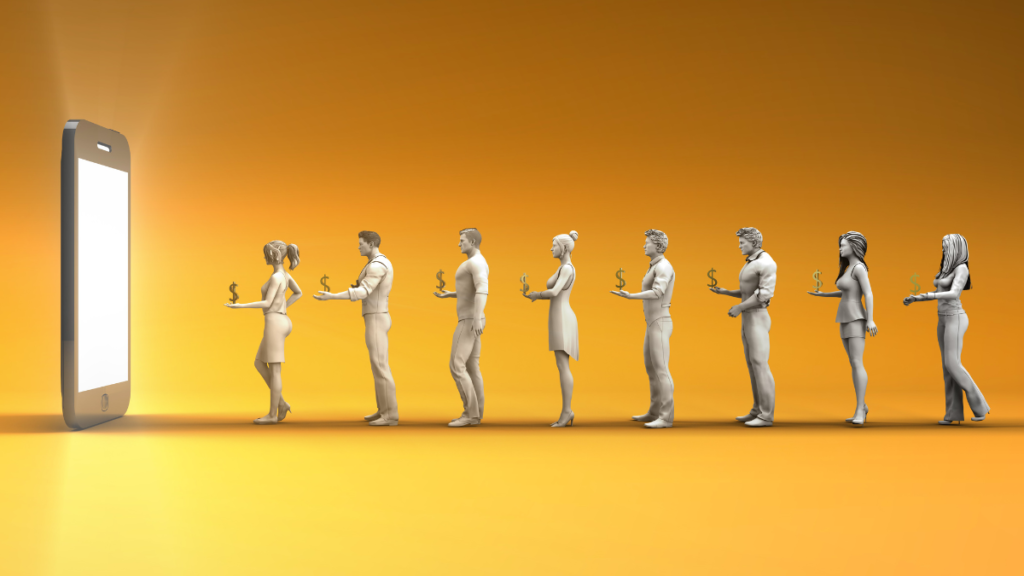It started with a selfie.
A creator, strapped for cash and between gigs, licensed their digital likeness—just their face—to a virtual brand looking for a friendly avatar. No long-term commitment. Just one campaign. Payment arrived within a week. Rent got covered. No influencer deal, no photoshoots. Just a face, turned into a commodity.
It sounds like a plot twist in a sci-fi series, but it’s happening. Right now. Across platforms, industries, and borders, people are discovering that their online identity—the images, the voice, even the way they type—has market value. And some are cashing in.
But here’s the thing no one talks about: what you give up when you sell a piece of yourself. Not metaphorically. Literally. Your face could appear in ads you never approved. Your voice might show up in apps you’ve never heard of. And once it’s out there, it’s hard to take back.
This isn’t a warning. It’s a wake-up call. Because while the digital gold rush is creating new opportunities, it’s also raising urgent questions. What does it mean to own yourself in a world where your identity can be downloaded, licensed, and monetized?
That’s what we’re unpacking here.
The rise of digital identity as an asset
We used to think of identity as something fixed—your name, your birth certificate, maybe your passport photo. Now, it’s a feed. A voice note. A livestream. A comment section where your tone, humor, and personality are unmistakably yours. And suddenly, that digital presence isn’t just expression. It’s equity.
Think about it. An anonymous meme page with a consistent tone can land brand deals. A gamer with a recognizable avatar can draw thousands to Twitch streams. A writer with a loyal Twitter following can sell a course before it’s even made. What ties all of that together? A distinct digital identity—packaged, recognizable, and, most importantly, profitable.
We’re watching a shift. Not just in how people show up online, but in how they think about their presence. A TikTok creator isn’t just making videos—they’re building a personal economy. Their face, voice, and vibe become assets they can license, rent, or build products around. In some corners of the internet, people are already creating AI versions of themselves to scale that presence—while they sleep.
And it’s not limited to influencers. Everyday users—students, freelancers, hobbyists—are realizing that what they’ve built online carries value. Sometimes more value than a traditional résumé.
This isn’t some distant, futuristic concept. It’s already happening. Quietly. Rapidly. And for those paying attention, it opens a door to both opportunity and caution.
What people are actually selling—and why it’s working
A voice actor uploads a few clean samples and suddenly gets hired by an AI company to train a speech model. A creator agrees to let a platform animate their face for product demos they’ll never appear in. A micro-influencer licenses their avatar to a virtual try-on app for just one season.
These aren’t hypotheticals. These are deals happening every day—quietly, and in some cases, lucratively.
People are selling the rights to:
- Their facial expressions for emotion-mapping tools.
- Their voice to train conversational AI.
- Their persona to be turned into chatbots or video agents.
- Even their writing style to shape AI-generated content.
What makes it all work is trust and familiarity. Audiences connect with personalities—not logos. So when companies look to humanize their tech or campaigns, they borrow the credibility that comes with a familiar digital face. It feels more real. More safe.
There’s also the appeal of access. Fans will pay for one-on-one interactions with AI versions of their favorite creators. Brands will pay for the chance to feature a familiar tone or face in their campaigns. And tech companies? They’ll pay to train smarter systems using real, expressive human data.
The demand is there. And as long as digital presence feels personal, there will always be value in the people behind it.
The danger of losing control over your digital self

A content creator agreed to license their voice for an audiobook platform. Months later, they found it narrating medical ads in a language they never spoke, with intonations they never approved. It still sounded like them. But it wasn’t them. Not really.
This is where things start to unravel.
Once your digital identity is out there—your voice, your face, your writing style—it’s hard to rein it back in. Even with contracts in place, enforcement gets murky fast. Terms can be vague. Platforms change hands. Technology evolves faster than the rules around it.
The real threat isn’t just theft. It’s misuse.
Imagine seeing a version of yourself—your face, your smile—endorsing a product you actively dislike. Or hearing your voice power a chatbot spreading misinformation. You didn’t say those words. You didn’t sign off on that message. But there it is, wearing your identity like a mask.
And then there’s deepfakes. Synthetic media has crossed into dangerous territory—not because of what’s possible, but because of how casual it’s become. What used to require specialized skills can now be done through an app. A few clicks and someone can puppet your face into doing or saying almost anything.
The hardest part? The emotional toll. It’s not just about brand reputation or copyright. It’s about dignity. Seeing your digital self twisted into something unfamiliar can feel like a kind of betrayal—one you can’t always prove or prevent.
The line between opportunity and exploitation
Some are making real money. Others are being mined for free.
One creator negotiates a licensing deal that lets them keep control over how their likeness is used. Another unknowingly gives full rights to a company just by clicking “accept” on a new platform’s terms. Same digital identity. Very different outcomes.
It’s easy to celebrate the wins—someone turns their online presence into income, and everyone applauds. But beneath that success story is a much bigger question: Who benefits most when people start monetizing their identities?
Because for every person cashing in, there are thousands giving away their digital footprint for nothing. Social platforms collect data at scale—how you move, what you sound like, what makes you pause while scrolling. And they turn it into products, ads, or algorithms. You don’t get a cut. You don’t even get a notification.
That’s the core tension.
The same tools that let you earn from your digital self can also strip you of control. Especially when the fine print is designed to blur that line. When companies use legalese to mask open-ended permissions. When creators feel pressured to trade autonomy for exposure.
This isn’t just about privacy. It’s about ownership. Consent. And power.
Tools and principles for safe monetization
Control starts with awareness.
It’s one thing to know your digital identity has value. It’s another to protect that value without giving it away too cheaply—or blindly.
Creators who’ve navigated this space well tend to follow a few key principles. First, they don’t sell outright. They license. That means they keep ownership and only allow specific uses, for specific periods, under specific conditions. If a platform or brand wants to use their face, voice, or content, it comes with clear terms and a clear end date.
Second, they ask for usage transparency. Where will this be used? Will it be altered? Will it be combined with AI systems that can replicate it later? These aren’t paranoid questions—they’re essential ones.
There are also tools now that help track how your content or likeness is being used. Digital watermarking. Blockchain-based identity tags. Even AI detection systems that can alert you when your face or voice pops up somewhere unexpected.
But no tool replaces consent.
The safest monetization is the kind you walk into eyes wide open—with contracts you understand, platforms you trust, and fallback plans if things go sideways. Not every creator will have a lawyer on speed dial. But everyone has the right to pause and ask questions before signing away a piece of themselves.
Why this matters beyond the influencer bubble
This isn’t just about creators with big followings or viral reach. It’s about anyone with a digital presence—which is to say, almost everyone.
The data trail you leave behind online doesn’t need to be curated to be valuable. It already says plenty. What you search. What you like. How you type. The rhythm of your voice on a Zoom call. It’s all part of a digital fingerprint that companies use to profile, predict, and sometimes profit.
Employers run background checks that now include your social tone. Insurance companies explore behavior-based risk models using browsing history. Platforms analyze your responses to tailor everything from dating matches to job ads.
Most people don’t get a payout for that.
They don’t even get a say.
The idea of monetizing digital identity isn’t some niche trend—it’s a preview of where the economy is headed. Where your online self becomes part of your portfolio. Where owning your digital identity means protecting your future access, credibility, and maybe even your livelihood.
So this conversation isn’t about keeping up with influencers. It’s about understanding what’s already being done with your identity—and deciding what you want to do with it, before someone else does.
Owning yourself in a world that profits from replicas
That creator who licensed their selfie to cover the rent? They got lucky. They set boundaries, negotiated terms, and walked away with their identity intact. But not everyone gets that chance—or knows they should ask for it.
As more of the world starts trading in faces, voices, and digital shadows, ownership becomes personal. It’s not just about having an account or a password. It’s about understanding what’s yours, what you’re giving away, and what it’s worth.
Because your identity isn’t a throwaway line in a bio. It’s a living record of how you move through the world—online and off. When that becomes a product, the question isn’t should you monetize it. The question is how—and at what cost.
You can rent out your voice. You can license your face. But the moment you give up the right to say no, it stops being a partnership. It becomes a transaction without limits.
And in a world that profits from replicas, keeping the original human in the loop isn’t just smart. It’s essential.




